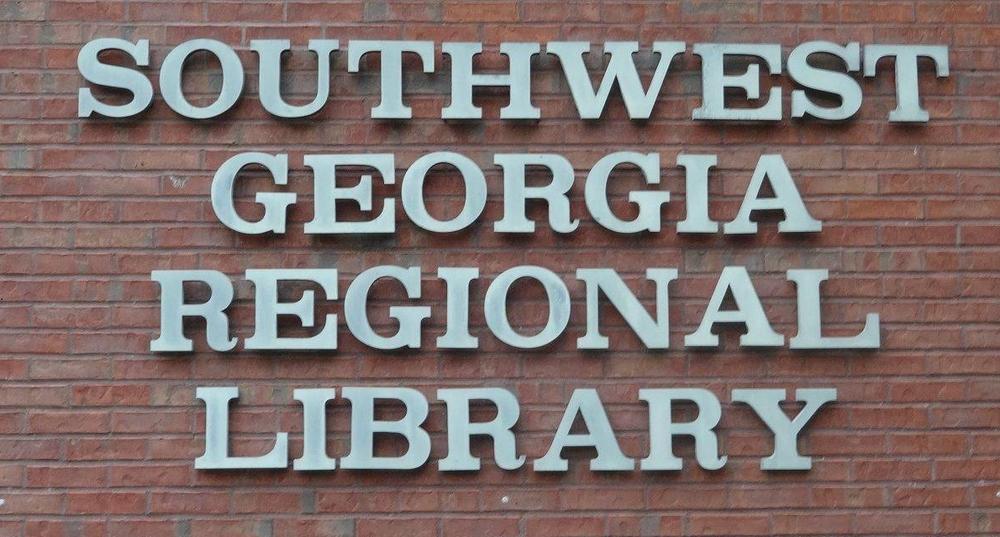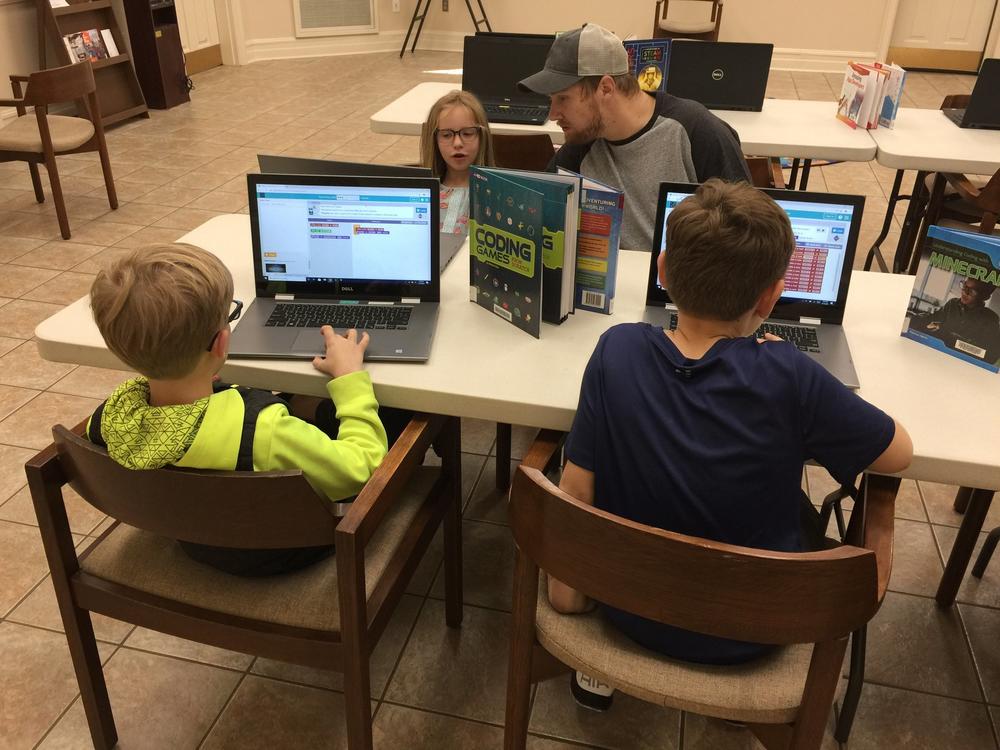Section Branding
Header Content
Libraries In Rural Georgia Are Still Meeting Community Needs During COVID-19
Primary Content
As businesses in Georgia reopen with strict guidelines to slow the spread of COVID-19, libraries around the state are still closed to the public. Libraries in southern Georgia are finding a way to meet community needs without fully reopening, but are struggling to provide uninterrupted access for all.
The Southwest Georgia Regional Library System — headquartered in Bainbridge 233 miles southwest from Atlanta — serves residents in Decatur, Miller and Seminole County, and provides collections, reference services, and events to meet the needs of the three counties’ communities. It also received the National Library Service Award by the Institute of Museum and Library Services in 2002, and it remains the only library in Georgia to receive this award.
The southern library system has come up with creative ways to engage their communities since the pandemic began. Instead of their Summer Reading Program being completed on paper, they’ve transitioned to using Beanstack online to log read books. Storytimes are now virtual. They’ve even issued temporary digital library cards for people who don’t have a library card and want access to their library system.
However, internet access is hard to come by in rural Georgia, and Southwest Georgia Regional Library System’s marketing and programming librarian Luke Brown said that lack of broadband coverage makes library operations trickier.
“We’re a very rural system, and rural broadband is the big challenge for some of our people,” he said.
As high speed internet proves essential to industries, businesses and households across the state, rural Georgia continues to have several gaps in broadband coverage. Over 760,000 residents are unserved, according to the Georgia Broadband Deployment Initiative. In Decatur County — the county in which the Southwest Georgia Regional Library System’s headquarters and its Gilbert H. Gragg Library is located — nearly 25% of the county has no broadband coverage.
Brown said that even though he doesn’t live far from the city of Bainbridge, his internet connection can be unreliable, and using video conferencing programs such as Zoom would only exacerbate connectivity issues.
“If the meeting went more than like 20 minutes, my internet would go out at some point … for maybe 30 seconds,” he said.
Even though the library system’s buildings are closed to the public, Brown said people can still use their WiFi in the parking lot during regular business hours, use their online resources and make donations on their website.
“It's not ideal, but that's what we do while we're closed,” he said.
Agriculture Secretary Sonny Perdue announced in February a $5 million investment in two, high speed broadband infrastructure projects that will create or overhaul rural internet access for over one thousand rural households, 32 pre-subscribed businesses and 20 pre-subscribed farms in McIntosh and Evans counties in Georgia.
“We know that rural communities need robust, modern infrastructure to thrive, and that includes having access to broadband e-Connectivity,” Perdue said. “Under the leadership of President Trump, USDA is proud to partner with rural communities to deploy this critical infrastructure, because we know when rural America thrives, all of America thrives.”
Funding is another challenge libraries face. The Southwest Georgia Regional Library System receives some state and federal funding, but most money comes from local taxes and aid. Gov. Brian Kemp was already imposing budget cuts before the coronavirus pandemic, but Brown said the library system is anticipating even more drastic reductions.
“We're going to raise local donations to cover the losses in our book budgets,” he said. “It's hard to know, at this point, what all that's going to look like.”
In the past two years, Georgia library systems — including Middle Georgia Regional Library System in Macon — faced local funding crises, and local community involvement pushed for support from local legislators.
“That just kind of shows [that] it's usually local funding that the libraries depend on,” Brown said. “Just let your legislators and let your funders know how vital the libraries are in our community.”
Other than providing books for people to read, Brown said the library is important for several reasons. From providing internet access for those looking for a job to offering free educational courses on business, the library system helps people at every point.
“We’re not just books. We have employment resources, we have internet, we have DVDs. We also offer programs,” Brown said. "So we just have to bridge the gap between what we offer and what they think we offer."




